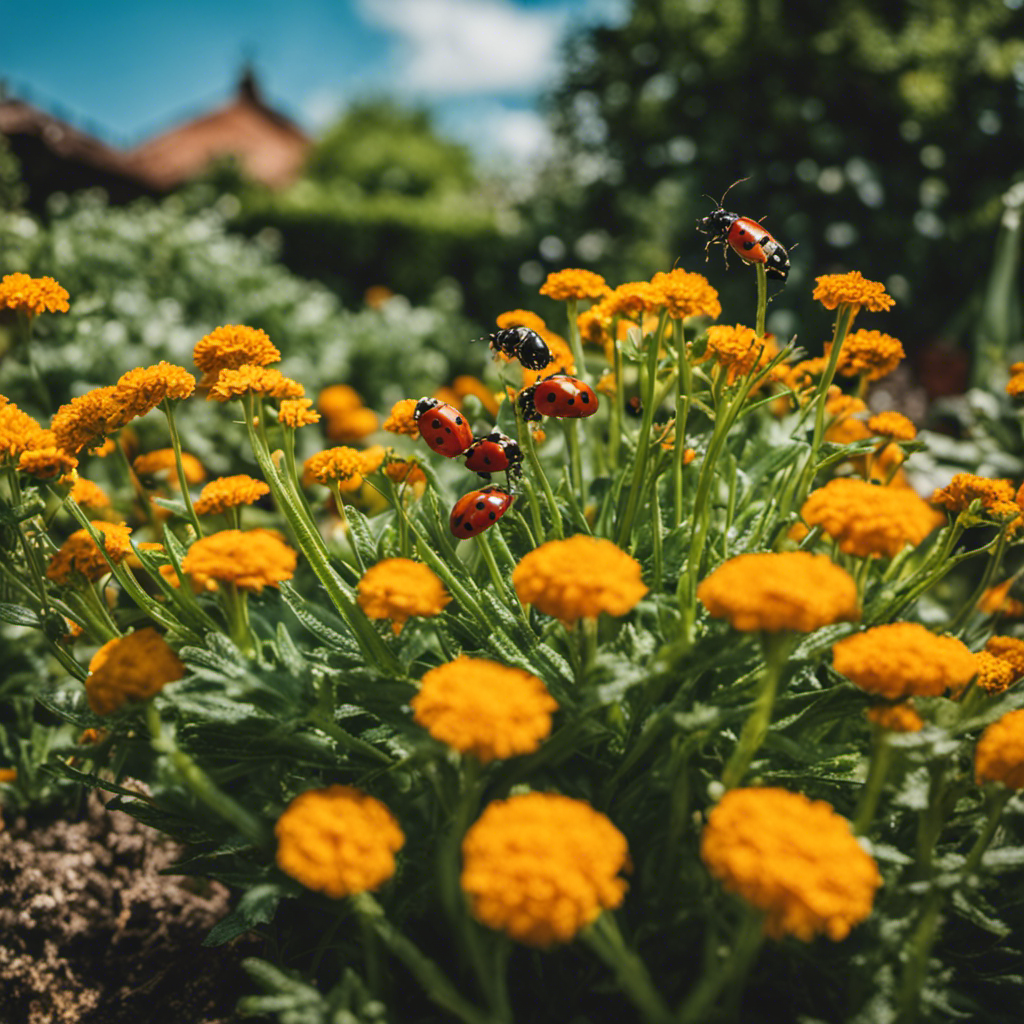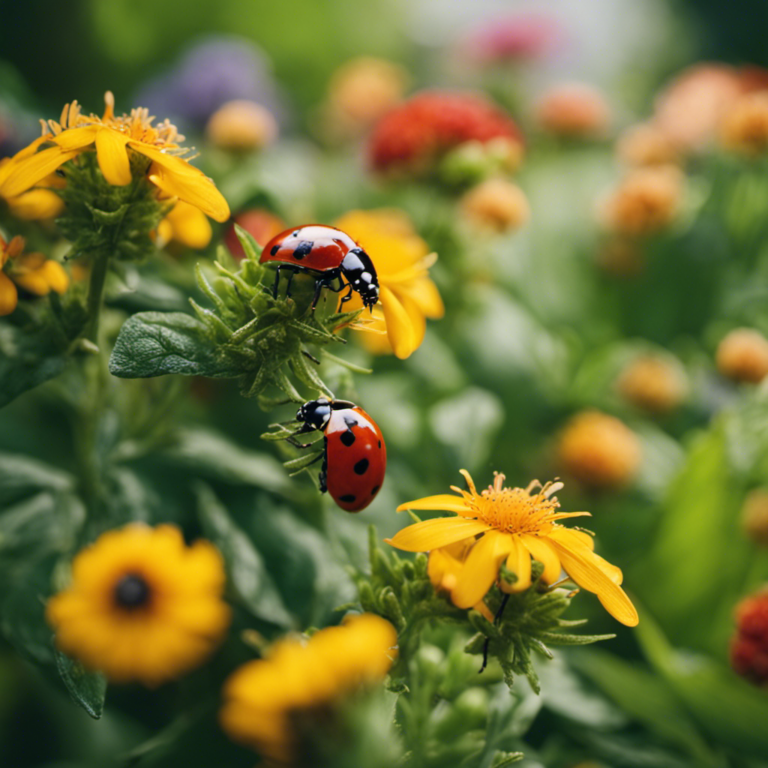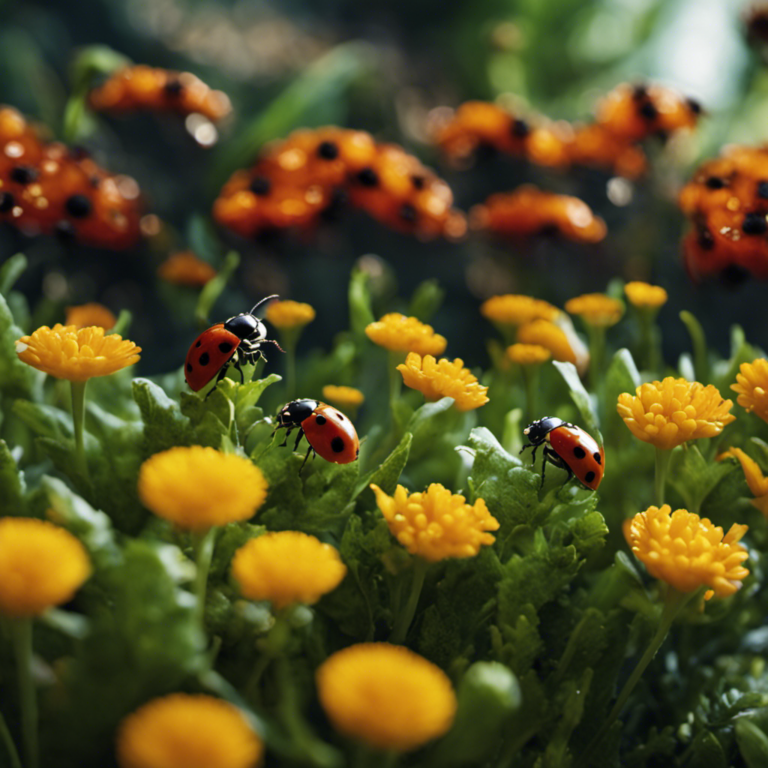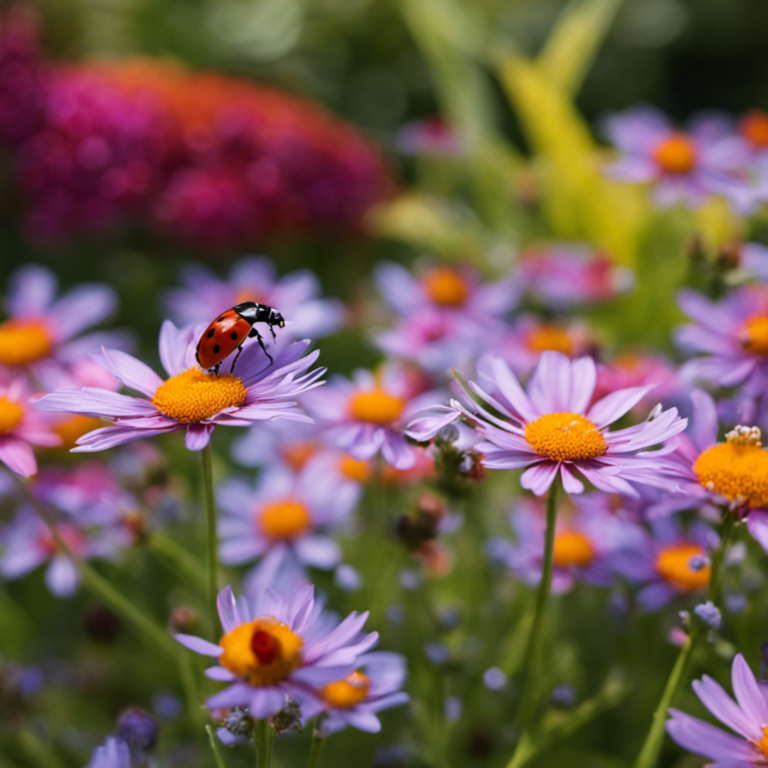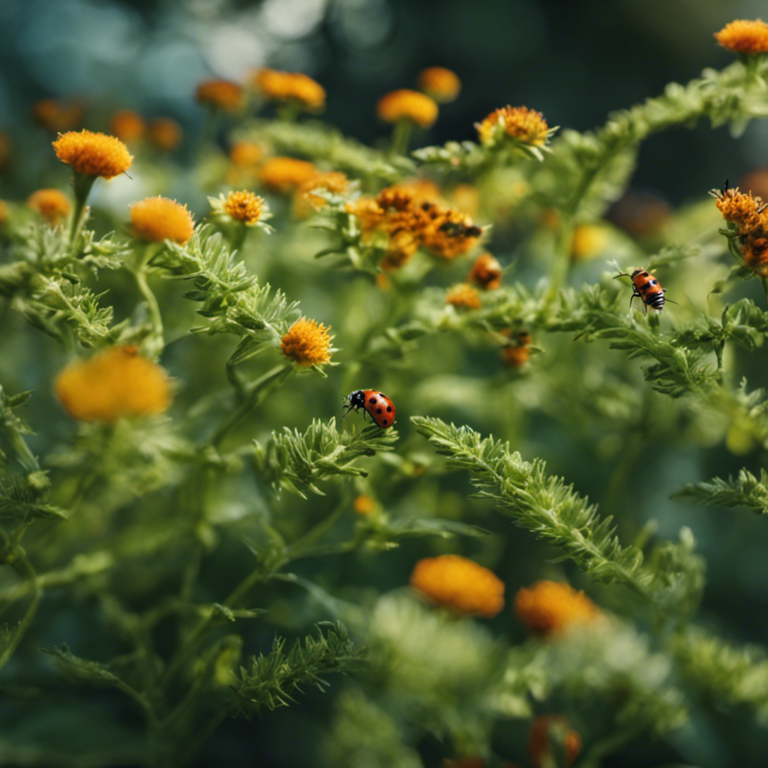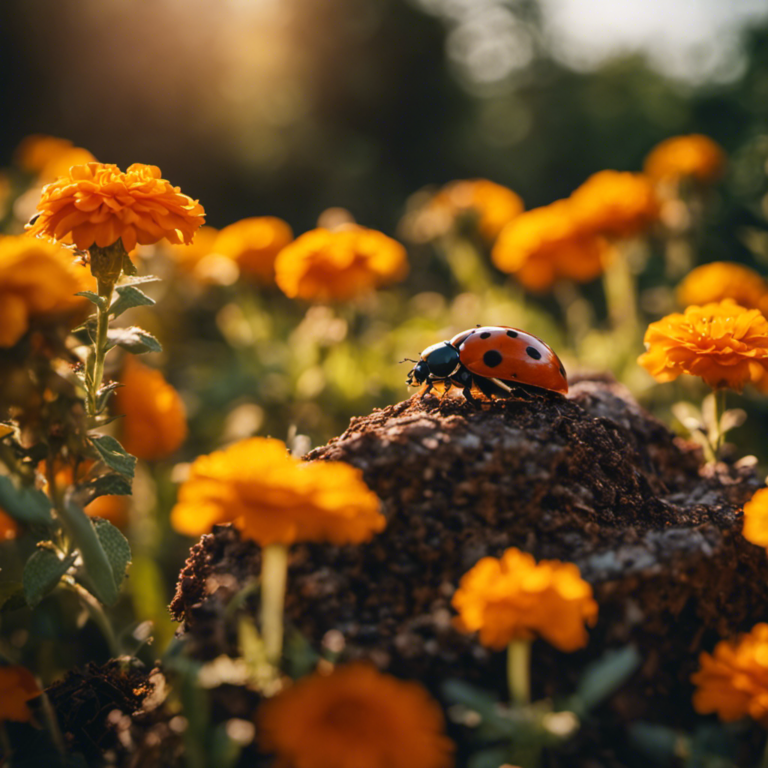5 Natural Solutions for a Pest-Free Garden
Are you tired of dealing with bothersome pests that destroy your garden oasis? Look no further! We have the perfect organic solutions that you need.
Our five proven methods will help you achieve a pest-free garden in no time. From companion planting to attracting natural predators, we have effective strategies to keep your garden thriving without the use of harmful chemicals.
Say goodbye to pesticides and hello to an eco-friendly garden. So, let’s roll up our sleeves and create a haven for both you and your plants.
Key Takeaways
Implementing these organic solutions in your garden can help you create a pest-free, beautiful and sustainable oasis. Like a symphony conductor orchestrates a harmonious performance, companion planting, natural predators, organic sprays, pest-resistant plants, and soil amendments work together to create a balanced and vibrant garden. Instead of relying on harmful chemicals, why not embrace nature’s methods and enjoy a thriving garden?
Creating a pest-free garden is a goal that many gardeners aspire to achieve. By utilizing organic solutions, you can avoid the use of harmful chemicals and promote a healthier environment for both your plants and the ecosystem as a whole.
Companion planting is a technique that involves growing different plants together to deter pests naturally. For example, planting marigolds alongside your vegetables can help repel insects like aphids and nematodes. Additionally, attracting natural predators such as ladybugs, lacewings, and birds can help control pest populations in your garden.
Organic sprays made from ingredients like neem oil, garlic, or soap can also effectively manage pests. These sprays target specific pests while being safe for beneficial insects and the environment. Regularly applying these sprays can help keep pests at bay without causing harm to your garden.
Choosing pest-resistant plants is another smart strategy. Researching and selecting plant varieties that are naturally resistant to common garden pests can save you time and effort in the long run. These plants have built-in defenses that make them less susceptible to damage, reducing the need for intensive pest control measures.
Soil amendments, such as compost and organic fertilizers, can also play a vital role in creating a pest-free garden. Healthy soil with a balanced nutrient profile supports strong and resilient plants, making them less attractive to pests. Enriching your soil with organic matter can promote beneficial microorganisms that help control pest populations naturally.
In conclusion, implementing these organic solutions in your garden can help you create a pest-free oasis that is both beautiful and sustainable. By embracing nature’s methods and avoiding harmful chemicals, you can enjoy a thriving garden that is in harmony with the environment. Remember, a pest-free garden is beneficial for your plants and the overall health and balance of the ecosystem.
Companion Planting
Companion Planting: Creating a Pest-Free Garden
To maintain a healthy and pest-free garden, you can make use of companion planting. This method involves growing specific plants together to repel pests and promote the growth of your crops.
One effective technique is crop rotation, where you change the location of your crops each year. This helps prevent the accumulation of pests and diseases in the soil.
Another method is biological control, which involves attracting beneficial insects that prey on garden pests. For instance, planting marigolds can deter aphids and attract ladybugs, which feed on aphids. Similarly, growing basil can repel mosquitoes and flies.
Additionally, interplanting herbs like mint and rosemary can discourage pests like cabbage moths and carrot flies.
Natural Predators
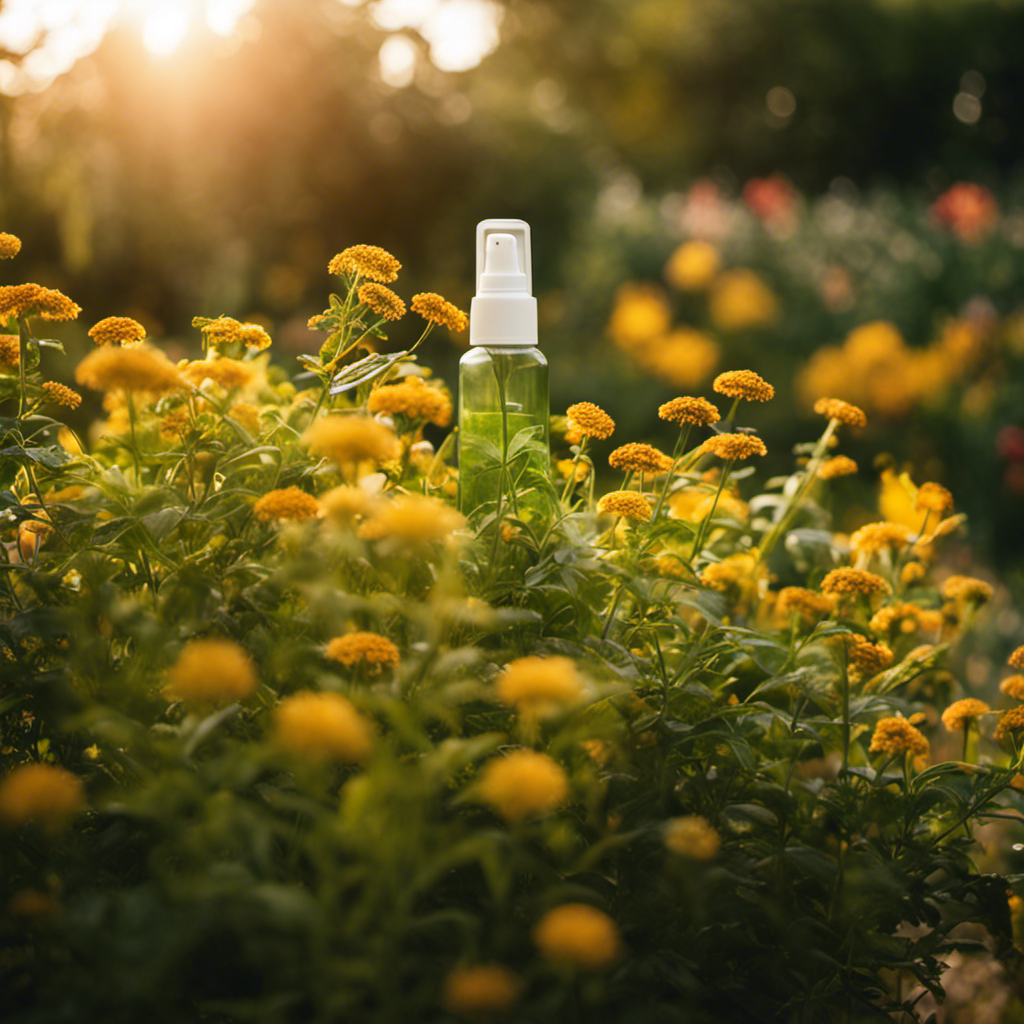
One effective way to attract natural predators and maintain a pest-free garden is by incorporating beneficial insects. These insects are crucial in controlling pests and promoting a healthy ecosystem in your garden. Let’s explore three types of natural predators that can help you manage pests without relying on chemical pesticides:
-
Ladybugs: These small, colorful beetles are voracious eaters of aphids, mites, and other harmful garden pests. You can naturally control these pests and protect your garden by attracting ladybugs to your garden. Avoiding the use of chemical pesticides isn’t only beneficial for your garden but also for the overall environment.
-
Lacewings: Another beneficial insect, lacewings feed on aphids, mealybugs, and spider mites. They’re attracted to gardens with diverse plant species, so incorporating a variety of plants can help attract lacewings. By providing a habitat with dense vegetation, you can encourage these helpful insects to thrive and assist in pest control.
-
Praying mantises: Known for their predatory behavior, praying mantises are skilled hunters who feed on a wide range of insects, including beetles, crickets, and grasshoppers. You can attract these fascinating creatures to your garden by planting flowers that provide nectar and offering a water source. By creating an inviting environment, you can enjoy the benefits of having praying mantises as natural allies in pest management.
Organic Sprays

Organic sprays are a great option if you’re looking for a safe and natural way to control pests in your garden. These sprays can effectively keep your plants healthy and pest-free without the use of chemical pesticides.
There are plenty of DIY recipes available for making organic sprays at home. One popular recipe involves mixing garlic, onion, and pepper with water and soap. This mixture can be directly sprayed onto your plants to deter pests.
Another alternative is neem oil, which is derived from the neem tree and has insecticidal properties. Simply dilute it with water and spray it on your plants to keep pests away.
Organic sprays are just one of many methods you can use for pest control in your garden. They provide an effective and environmentally friendly solution that avoids the use of harmful chemicals.
Pest-Resistant Plants
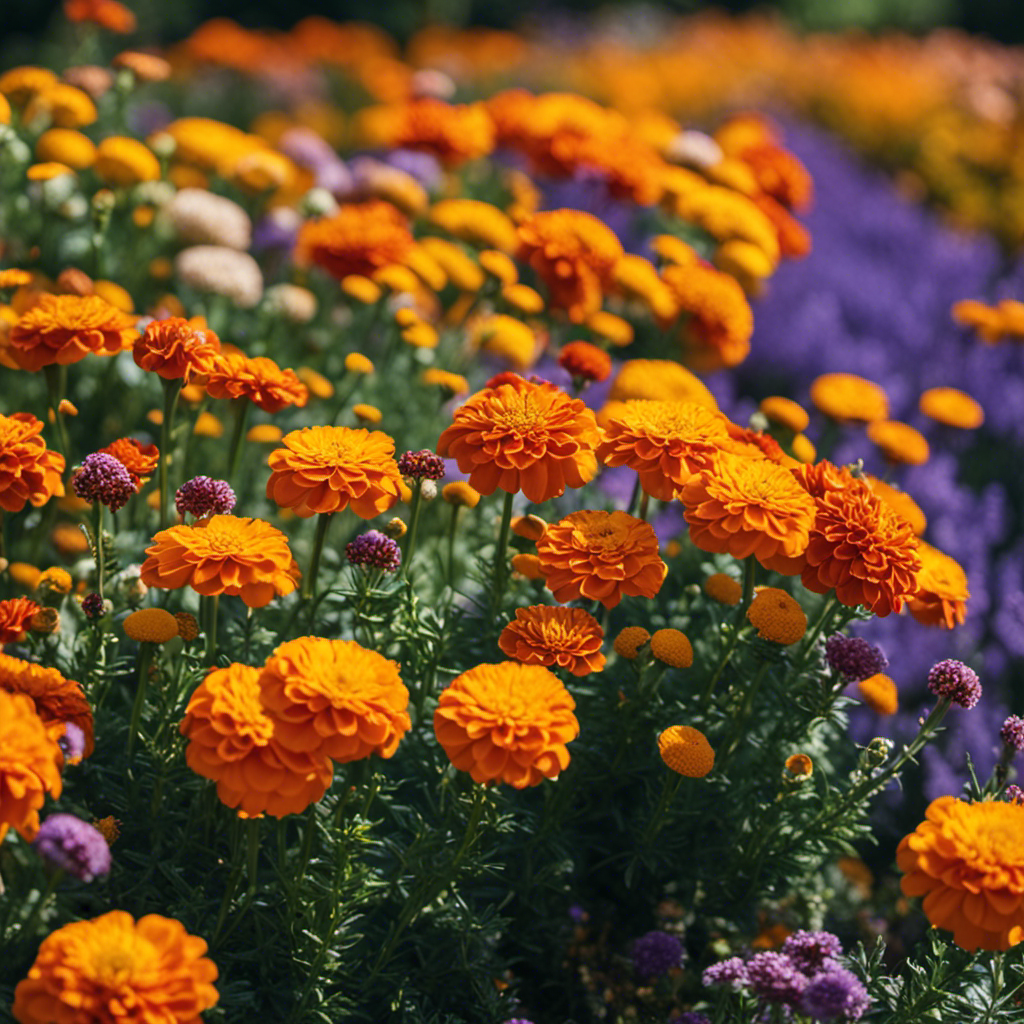
Consider incorporating pest-resistant plants into your garden as an organic solution for a pest-free environment. These plants have natural defenses that make them less appealing to pests, reducing the need for chemical pesticides.
Here are three sub-lists to help you choose the right pest-resistant plants for your garden:
-
Pest control herbs: Planting herbs like basil, mint, and rosemary not only adds flavor to your meals but also helps repel pests like mosquitoes, aphids, and flies.
-
Biological control: Certain plants attract beneficial insects that act as natural predators to garden pests. For example, marigolds attract ladybugs, which feed on aphids and other harmful insects.
-
Companion planting: Some plants have the ability to repel pests when planted alongside susceptible crops. For instance, planting marigolds near tomatoes can help deter nematodes.
Soil Amendments
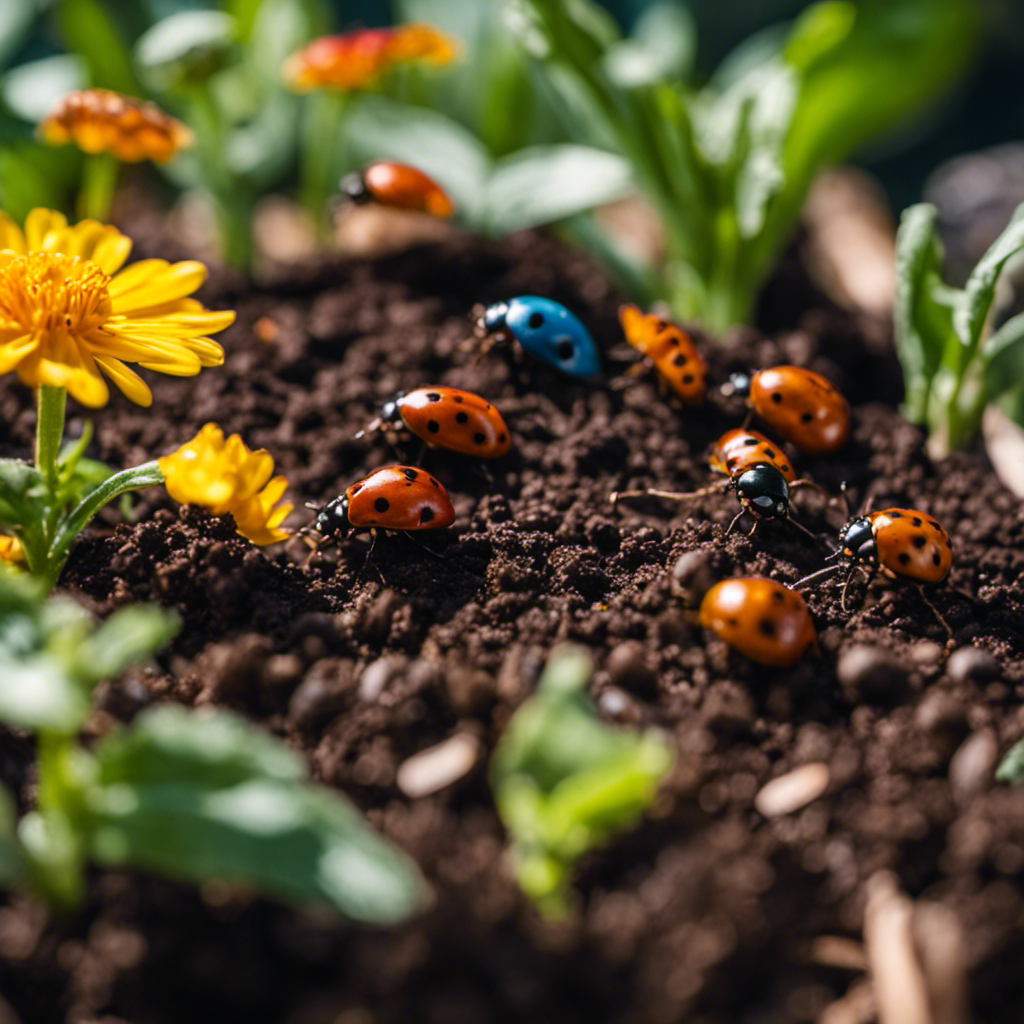
To create a healthy and pest-resistant garden, it’s important to incorporate soil amendments that promote optimal plant growth and discourage infestations. Compost and organic fertilizers are two effective soil amendments that offer numerous benefits for your garden.
Compost, which is made from decomposed organic matter, enriches the soil with essential nutrients, improves soil structure, and helps retain moisture. It also encourages the growth of beneficial microorganisms that naturally control pests.
Organic fertilizers, derived from natural sources like plant and animal waste, provide a slow release of nutrients, ensuring steady and balanced plant growth. Additionally, they improve soil health, making it more resistant to pest attacks.
By incorporating these soil amendments into your garden, you can create an environment that supports thriving plants while minimizing pest issues.
Soil Amendments:
- Compost: Enriches soil with essential nutrients, improves soil structure, enhances moisture retention, promotes growth of beneficial microorganisms.
- Organic Fertilizers: Provides slow-release of nutrients, ensures steady and balanced plant growth, improves soil health.
Conclusion
By implementing these organic solutions in your garden, you can create a pest-free oasis that’s both beautiful and sustainable.
Just like a symphony conductor orchestrates a harmonious performance, companion planting, natural predators, organic sprays, pest-resistant plants, and soil amendments work together to create a balanced and vibrant garden.
So why not embrace nature’s methods and enjoy a garden that thrives without harmful chemicals?
